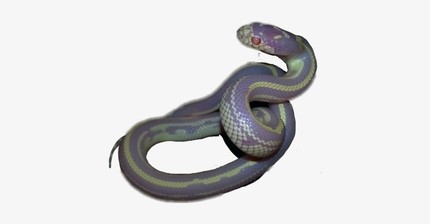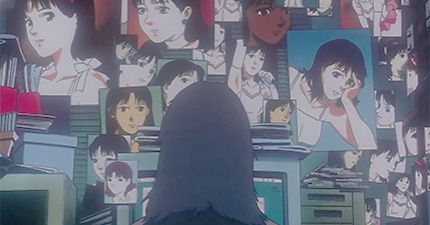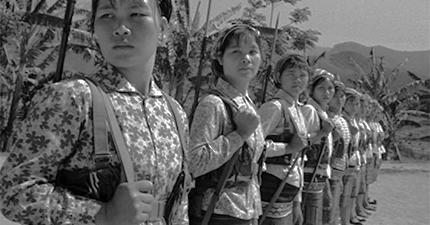This article is for all of the Asian Americans who are struggling to find a political home right now. I have a memory that I will share with you.
When I was in the sixth grade, we learned about the orphan railroad. The orphan railroad was started by a man named Charles Loring Brace who believed that poor, Catholic immigrants were racially inferior to WASPs. He lived on the crowded east coast where street kids loitered. Brace called these kids, mostly white immigrant children, “street Arabs.” He believed that, if the kids left the debauchery of New York City, that they could become upright American citizens.
Thus, began the orphan railroad.
The orphan railroad trafficked children from the urban centers in the east coast and put them to work on homesteads in the midwest. Most of the kids were not actually orphans. Their families just could not afford to feed them. Many of them suffered so many moves and name changes that they had no idea of their heritage. They were forced to assimilate. When we learned about the orphan railroad, we read a fictionalized account of a boy and his sister. I remember learning about how cruelly the midwestern farmers treated them, how they were made to work and how vulnerable their situations felt.
When we learned about the orphan railroad, my teacher did something very interesting. She wanted to impress upon us the desperation that these children faced. She called me up to the front of the classroom and ordered me to get on the floor and beg. She wanted me to pretend to be an orphan and pretend to beg her, an early settler matriarch, to keep me.
So awkward! “Please keep me?” I made myself say. She told me that I wasn’t convincing enough. “Beg!” she barked. She forced my hands around her thigh and pressed my head between her legs. I could smell her. She was a middle aged white woman with curly brown hair and I was a ten year old kid. The whole class watched us. My teacher told me that she wasn’t sure if I was going to be worth her money. She made me open my mouth so that she could check my teeth the way adoptive families checked the teeth of the children they were taking in.
After she was satisfied, she allowed me to get up and return to my seat in the classroom. My head felt hot but I mostly felt confused. Why had she picked me to play the part of an orphan? I got that she was power tripping but why had she picked me? My teacher never picked me for anything. She mostly ignored me but her eyes had made a beeline towards me when she casted this role.
Today, I know why she picked me. She hadn’t actually been trying to pick me. There were only two east Asian kids in my class and my teacher often got us confused. There was me and there was my best friend at the time, a Korean girl who was adopted by white parents.
During and after the Korean War, America developed an appetite for Korean babies. Some of these babies were orphans but many were not. Sometimes, families were tricked into giving their kids away in exchange for forgiven medical debts. Names were mixed up. Records were confused. Kids never intended for adoption were swapped out for kids who were, all to meet the speed of a growing industry. More recently, the same thing has been happening to Haitian kids. The same thing happened to Chinese kids too during China’s one child policy and political instability. Indigenous kids, too, were stolen away from their families and put into boarding schools all throughout US history. Today, kids continue to be stolen away from their families at the border.
When my teacher called me up to play a begging orphan, I already knew about white women’s desire for orphans. I was always hearing about how Asian babies were so cute when I was younger. White women would come up to me with their kids and look me over, telling me that they loved my “almond eyes.” What the fuck are almond eyes? I would look at my eyes in the mirror and try to figure out what they were talking about. At every Chinese cultural festival, I would see these white couples with their Chinese babies collecting artifacts and eating our food but mostly staying to themselves. The Daily Independent wrote in 1912, “They were very healthy tots and as pretty as anyone ever laid eyes on.” The line feels familiar. It could have been written in 1908, 1952, 1999, or 2024.
After the show, I returned to my seat. My best friend at the time, who was Korean and adopted, got really mad. I wasn’t mad. I usually do not process anger right away. She was mad though. Really mad.
I’m glad that my teacher did that to me and not my ex-friend that day, that she got us confused. Me and that girl had been close friends (though we had a falling out later in high school). If it wasn’t me, it would have been her. Thinking back to what my teacher made me do, the memory doesn’t bother me. I mostly just file it away with the rest of the weird stuff that white women like to do and I believe that I no longer allow that file in my cabinet of memories to affect me any longer. But if my teacher hadn’t gotten us confused and picked her instead? Maybe I’m projecting but I think that would have been more fucked up. I’m glad that I got chosen. Not her.
Like many Asian parents, mine were not easy. I was always so ashamed of them, to the point of becoming agoraphobic. Agoraphobia in immigrants is like a reverse form of xenophobia.
When we walked around outside, they were too immigrant-like and kept trying to forage instead of walking normally. My mom would shriek and throw a tantrum whenever the cashier got her change wrong. They had no idea how to handle bureaucracy and they didn’t know how to spell basic words. As I got older, I started to feel like they were burdens. I didn’t want to be seen outside with them and, since I wasn’t allowed to go outside by myself, I didn’t want to be outside at all.
Like a lot of Asian parents, my parents hit me. They would pull my hair to hold me in place and slap me repeatedly on the face. They would scream at each other, chasing each other around, when they fought about money. They would pinch me while berating me to let me know what a waste of space I was. Their anxieties were suffocating. If I wanted space, they would chase me around.
I think that the issue with a lot of immigrant kids or children of immigrant parents is this—we don’t trust that our parents will act as our protectors. They move through society with too much incompetence and too many delusions. They need us to do admin work or translation work almost all of the time. They hurt us and they bully us. They don’t understand the world around us. We don’t trust that our parents will act as competent protectors in a world that is trying to devour us, all of us, whole. To me, my parents always seemed like giant toddlers ready to throw a tantrum at a moment’s notice. Whenever they got frustrated, they always punched down (towards me).
Asian moms can be sadistic, controlling, and demanding. This is true. And white culture makes a super big deal out of telling us about how sadistic, controlling, and demanding Asian women are. Both of these things are true at once. Sometimes, I can’t stand my mother. White culture also intends to make me disavow my mother, telling me that she is a dragon that I must grow up to slay. White culture loves to vilify Asian women and Asian moms. White culture loves stories about special orphans who slayed their familial dragons, stories about Harry Potter and Bambi and Holes.
My parents, too, would make these sick jokes about selling me at the market when they grew sick of me. They grew up and they raised me in an era of human trafficking. They normalized it. My grandma did give up my dad at some point. He normalized it.
Every step of the way, America tries to orphan immigrant kids, telling us that we are politically alone because our parents lack the social or cultural skills to navigate our society. Every step of the way, Asian parents remind their kids that we can easily become orphans because they are willing to stop loving us.
Me and my sixth grade best friend, the one my teacher confused me for, fell out in ninth grade. She made some kind of off handed joke about how my parents didn’t even know English. It wasn’t even mean. It was just a comment, the kind of thing teens say to each other because teens are socially awkward and politically incorrect.
I don’t know why but, that day, I wasn’t taking any shit. Her comment felt like she was throwing my lack of protection in a racist world back at me. I stopped talking to her completely. This was after five years of close friendship, of being there for each other and trying to protect each other against all odds. I regretted it almost immediately but I didn’t approach her again. We never spoke again. I just wasn’t mature enough.
Asian parents can be extremely abusive. America also loves to consume stories about immigrant kids disavowing our immigrant parents because it likes orphans more than it likes people. Both are true at once.
I hear it and I feel it. I hear the stories about Asian queer coming out against all odds to our judgmental parents but then finding chosen family outside of our immigrant enclaves. White queers will straight up just ask me, “Are your parents really Asian?” with that smug little smirk that tells me that they think they know what they are talking about. When complaining about Asian parents with other Asians, we often talk as though we could cast off entire histories of trauma, famine, fears of scarcity, persecution, exploitation, war, and violence simply by “grayrocking” or cutting our parents off. Just move away. Cut them off. Cast them off.
And, sometimes, that’s a valid choice. Asian parents can be unbearable to be around. I’ve cut my parents off too. I will always support someone’s decision to do that.
And yet, that physical distance still doesn’t answer that question that we many of us hold deep down inside: who protected me when I was small? Who protected me politically when I was trying to grow up in a racist world?
Our parents don’t always understand racism. If a teacher flunks you because she hates you, your parents don’t always understand why you couldn’t have just worked harder and gotten over it. My mom was screaming at small robberies by cashiers because that’s how the older generation, who survived famine, fought over resources back in China. She didn’t understand how terrifying that behavior was to me because she didn’t understand how terrifying American security guards and cops are. She didn’t understand that she was putting us in active danger because we live in a police state. Her body remembers only famine and cares only about small robberies.
Who protected me when I was small? Who protected me when I was trying to grow up in a racist world?
I return to my memory of the teacher who made me pretend to be an orphan. She taught us about the orphan railroad but she didn’t teach us about the actual railroads or about the people buried underneath them. The orphan railroad was a railroad. Every railroad is a monument, a tombstone.
What my teacher didn’t teach us was—80% of the workers who built the actual railroads of the orphan railroad were Chinese. Those workers built the railroads at great personal risk. People were worked to death. After the railroads were built, Chinese people were ethnically cleansed. They were lynched, massacred, and displaced. Some of them had to walk hundreds of miles along the very railroads that they had built because their homes were burned or taken over by Anglo-settlers. Women were banned so that the population would disappear. Then, the entire Chinese population was banned and tagged. Then, all Asian Americans were limited and controlled.
I remember a phone call with a friend in California. “I’m staying at a hotel that was built by Chinese people,” she told me. “They didn’t want to see the Chinese workers so they built a tunnel from their living quarters to the hotel. Once the hotel was completed, they tricked the workers into the tunnel and filled up both ends. They buried them alive.”
What you might find interesting about these stories is that Chinese people are still here. Chinatowns are still here. So are the many mutual aid societies that made life possible for people.
Chinese people fought for family reunification after Chinese women were banned and after their kids were taken away. Their kids grew up in Christian orphanages and grew up to write letters to governors in perfect English advocating for their children. Chinese people smuggled each other in after the Chinese Exclusion Act (1882-1965) was passed. When the Geary Act of 1892 mandated that Chinese people carry an internal passport and mark themselves for ethnic cleansing, Chinatown organized one of the largest acts of civil disobedience in history. They refused to be marked. Today, immigrants can apply to rejoin their families. We don’t carry an internal passport or have to wear a tag. We have certain civil rights and human rights only because of the multi-generational activism and civil disobedience of Chinese people, most of whom could not vote.
Who protected me when I was small? Who protected me when I was trying to grow up in a racist world?
These are parental acts. Parenting is the act of planning for someone and protecting their existence. Several generations of Chinese people planned for our existence and acted to protect us, not just future generations of Chinese Americans but future generations of Asian Americans. They planned for our existence. Many of these Chinese workers were men with no offspring but they still did the work of parenting within their lifetimes.
These Chinese people back in history fought for us. They took on great risk to protect us. They organized and they protested. Some of their names are known to us—Fong Yue Ting, Mary Tape, Wong Kim Ark. Many of their names are not known to us. They created things—laundromats, takeout, and vegetable markets. Their bodies lay buried beneath American infrastructure.
I regret falling out with my ex-friend. At the time, I was so sick of being judged for my parents that her comment felt like the last straw. Maybe I was punching down a little bit because that was what I was taught by my parents. I expected her, of all people, to understand but I also didn’t communicate why I was so upset to her. I didn’t have enough empathy for her situation because I didn’t have empathy for my own. My parents disgusted me. I hated her for naming that and for being disgusted by them too. Neither of us grew up with reliable protectors who could teach us how to navigate racism. I was jealous of her because her parents were white Americans who spoke English and never seemed to humiliate her or hit her. I wonder if she was ever jealous of me because my parents were Asian like me.
America tries to get us to disown our parents all the time. Break away from your parents with their insufferable immigrant mentalities and conservative values! Break away from your parents with their loud fears and harmful displays of love! I can hate America for loving the idea of orphans more than people but I can’t argue with the fact that my parents didn’t understand America well enough to protect me.
And, yet, we do have protectors. We have political lineages. We have the Chinese and Russian and Korean poetry at Angel Island, carved into the walls. We have the letters and legal cases that people fought over and over again and still fight. We have generations of people who understood racism, who knew how to describe it, and organized to fight it.
These are our Asian parents too. They did parental work for us even though they lived before our time.
I’m not in contact with that girl my teacher confused me with anymore but, if I was, I would tell her that neither of us are orphans. I would tell her that every single person buried under the railroads or some hotel or won a legal case against the United States of America is our Asian parent too. These people are our Asian parents and we share them with each other. They are our protectors. They accounted for us, future generations of Asian Americans, when no one else did. They fought for us because they knew that we would be here.
White America loves Asian orphans but Asian orphans don’t exist, not when kinship itself is a mass movement. Orphanage is an American invention. Too many people have fought for us. American infrastructure is their tombstone. The orphan railroad was a railroad. The evidence of our protection is all around.


